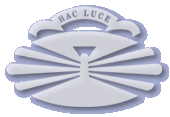
| Laboratorio de Ingeniería Mecánica |
| Universidad de La Coruña |
 |
|
Español | ||
Content
|
MBSLIM: Multibody Systems at Laboratorio de Ingeniería MecánicaIntroduction:MBSLIM is a library for the dynamic simulation of generic multibody systems, developed since 2007 by the Laboratorio de Ingeniería Mecánica at University of A Coruña. In addition to the dynamic simulation, its main purpose, MBSLIM incorporates some extra features like the static equilibrium position, the kinematic simulation or the inverse dynamics and some singular advanced features like the EKF (Extended Kalman Filter) state estimation, the kinematic and dynamic sensitivity analysis, the dynamic optimization and the optimal control of multibody systems. In recent years, its capabilities were extended by adding flexible bodies through FFR (Floating Frame of Reference) and it currently allows solving both dynamics and sensitivity analysis of multibody systems with rigid and flexible bodies. In order to carry out the simulation tasks, the library writes and solves the equations of motion of the mechanisms or machines defined by the user, with the help of functions included as a part of it. MBSLIM implements cutting-edge state-of-the-art dynamic formulations, not available in other codes, allowing the user to tackle specific problems in which other codes fail. Moreover, the analytical gradient based optimization and optimal control advanced features give it an important advantage compared to other simulation softwares. The software was developed in Fortran 2008 as a colection of modules and it was verified in several different platforms, compilers and operating systems. The library includes a module to interact with Matlab and Octave, sending data, running calclulations and recovering results if needed. For the most complex simulations the library can make use of MBSmodel, a separate C++ library also developed at LIM for the 3D rendering and collision detection between bodies with complex geometries given by 3D CAD files. Features:MBSLIM implements two families of formulations: a family of global formulations in natural coordinates and a family of toplological formulations in joint (relative) coordinates. The mechanisms definition is unique, independent of the formulation selected and both families are perfectly fit in the software. The dynamic formulations currently supported in MBSLIM are the following:
The following direct and adjoint sensitivity formulations are also available:
Flexible bodies are simulated by means of FFR (Floating Frame of Reference) and for the representation of deformations any type of modes are allowed, without any restriction (static, dynamic, constraint, etc.). The method makes use of a finite element preprocessing that can be done in the commercial software Siemens NX with Nastran solver, by means of the PDE toolbox of Matlab, or by means of the DINA3D code, a proprietary finite element code developed specifically for MBSLIM. For the sake of robutsness and due to the usual stiff character of the equations of motion, most of the time-stepping integration schemes are implicit. For the resolution of the nonlinear systems, Newton schemes with approximate and exact tangent matrices are used. Fixed-point iteration is optional for the formulations compatible with the scheme. The numerical integration schemes currently implemented are:
The library includes a complete module of constraints and the user has the option of customizing the existing constraints or defining new ones and add them to the MBSLIM models. The following categories of constraints are available in the library:
The software includes a module of forces as well. The user has the option of customizing the existing forces or defining new ones from scratch to use them in the existing MBSLIM models. The following forces are available:
******************************************************************************************************************* Copyright ©, 2009-2021, Daniel Dopico Dopico, Laboratorio de Ingeniería Mecánica (Universidad de A Coruña) All rights reserved. Todos los derechos reservados.
Modification, redistribution and use in source and binary forms, are only permitted to the owners of the copyright. ******************************************************************************************************************* |